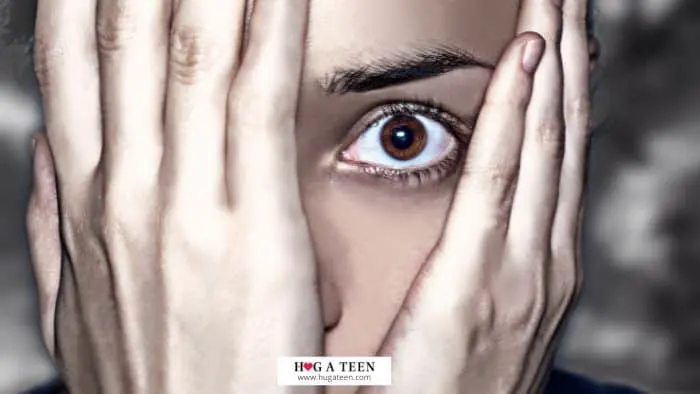As a teenager, life can often feel overwhelming. Intense emotions and feelings of anxiety, anger, or depression can be confusing and challenging.
With school, extracurricular activities, social pressures, and the looming prospect of adulthood, it’s no wonder that many teens struggle to cope with the challenges they face on a daily basis.
Fortunately, there are a variety of coping skills that teens can use to help them navigate the ups and downs of adolescence.
❤️ You might also like to read:
Coping Skills For Teens
As teens learn how to navigate challenges in life, parents should guide them toward healthy coping skills to help them deal with stress. While some stress is normal and can even benefit teens, it can lead to unhealthy choices with long-term consequences if it’s not managed properly.
While we hope our children will come to us about stress, the reality is that they often attempt to deal with it on their own. Teenagers frequently turn to things that provide short-term relief to cope with stress and make them feel better immediately.
Teaching teens a wide range of healthy coping skills is essential to reducing their need to turn to worrisome behaviors and supporting their emotional and physical health.

Let’s look at some coping skills that we can teach our kids:
1. Self-care
Whenever you feel confused and your emotions seem to be all over the place, self-care is usually something you might overlook. But the truth is putting yourself first is one of the steps to bringing a sense of calm and tranquillity.
Self-care does not have to be costly, so you don’t need to worry about an over-the-top budget. It can be as simple as taking a long relaxing bath, listening to uplifting music, or sitting in the sun and closing your eyes for a few minutes.
It’s all about doing something good for your body, mind, or soul.
2. Take a break
The pressure to keep pushing or to keep going often causes more turmoil and confusion. You should take time out to check in with your feelings.
Going for a walk or listening to music can calm you down.
3. Gratitude
It is easy to get carried away and fail to notice all the great and beautiful things happening in life. You can practice gratitude by writing in a gratitude journal. In it, note what you are grateful for, great friends and a loving family; the small things matter and make you realize you don’t have to worry so much.
❤️ You might like to read: 305 Things To Be Grateful For
4. Meditation
Take a few minutes to meditate and do a few breathing exercises. You can find several breathing exercises online; find time to practice relaxation techniques by looking up breathing exercises online. In addition to deep breathing, you can slowly count 1-20/1-30 or do some stretches or yoga.
5. Talking and sharing
When you start feeling overwhelmed, instead of being alone, you can find someone to talk to, a friend or a grown-up you trust. If possible, you can get a session with a mental health professional like a therapist or counselor.
6. Physical touch
After sharing your feelings with someone you trust, you can ask for a hug or even for someone to hold your hand.
7. Practicing positivity
Talk to yourself positively and chant positive affirmations. Learn to think positively and be in a space that brings about positive emotions.
❤️ You might enjoy reading: 150+ Positive Affirmations for Teens (Free Printable)
8. Play
Spend time with friends or members of your family playing games. It can be board games, treasure hunts, minute-to-win-it games, or simple DIY games that get your adrenaline pumping. Find ways to get involved in physical activities in school or at home.
List of Coping Skills Activities For Teens
Use this list to develop a coping toolbox of sorts from which you can draw when you need inspiration:
- Do something with your hands to take your mind off of your negative feelings, such as drawing, doodling, painting, crafting, or building.
- Write yourself a nice note and keep it in your pocket.
- Spend time listening to nature’s sounds (ocean waves, birds chirping, etc.)
- Write positive affirmations on cards and decorate them.
- Write something positive about yourself for every letter of the alphabet.
- Write down your thoughts, feelings, and emotions in a journal (the next best thing to talking about them).
- Write a poem.
- Create a blog or write a story!
- Keep a gratitude journal (you’ll be surprised by all you have to be grateful for – write it down!)
- Make a collage of your favorite things.
- Exercise (running, walking, swimming, biking, etc.)
- Pump up the music and hit the gym.
- Get out into nature.
- Lay in the grass and look up at the sky.
- Try to relax in the sun, close your eyes, and breathe without thinking.
- Walk on the beach.
- Seek out the company of others.
- Get in touch with a supportive friend by phone or Facetime.
- Talk to your family.
- Have a good cry.
- Spend time with your friends (laugh, get silly, and have an adventure!)
- Organize something fun to look forward to (looking forward to something can change how you feel about life).
- Get a massage or manicure to pamper yourself.
- Put some aromatherapy to work (candle, lotion, room spray).
- Make a playlist of music that makes you happy.
- Sing and dance around in your room.
- Play a musical instrument.
- Watch a YouTube video of cute puppies.
- Snuggle with your animals.
- Have a nap snuggled up with your favorite blanket.
- Hug a pillow or stuffed animal.
- Punch a pillow or punching bag.
- Count backward from 100.
- Blow bubbles.
- Try progressive muscle relaxation techniques.
- Finger paint.
- Paint rocks.
- Rip paper into tiny pieces.
- Look for yummy recipes online.
- Make the world’s best smoothie.
- Make your favorite snack or comfort food.
- Bake something yummy.
- Play with a bouncing ball or stress ball.
- Jump on a trampoline.
- Organize and declutter your bedroom (your environment affects how you feel).
- Practice meditation, yoga, and deep breathing/relaxation techniques.
- Take the time to do something nice for someone else (redirect your attention to others). Read why Kindness Matter To Our Mental Health
- Treat yourself to something new (even if it’s just a small item)
❤️ You might like reading: 28 Super Easy Recipes That Teens Can Make Themselves
Watch this video for some amazing distraction and processing coping skills explained:
Anxiety Coping Skills For Teens
Being a teenager is hard. They can experience waves of emotion that come out of nowhere. Children who aren’t taught how to manage these uncomfortable feelings may adopt unhealthy (or even dangerous) coping mechanisms.

1. Identify the triggers
Understanding what triggers your anxiety will help you identify your type of anxiety and implement ways to deal with it. Teens might have generalized anxiety and worry about daily issues. Many teens and adults have social anxiety, where social interaction might trigger them and even lead to panic attacks.
Being aware of when you feel anxious can help you recognize the patterns and force you to think more critically about the reasons behind your anxiety.
2. Grounding exercise
This exercise involves you listing five things you can see, four things you can feel, three things you can hear, two things you can smell, and one thing you can taste.
By focusing on something at a time during the grounding exercise, you take your mind off negative feelings that are causing you anxiety.
3. Lower your expectations
Pressure to excel can be a reason for teen anxiety. Although we all want our childer to do well in life, we also need to ensure that they understand that doing their best is enough.
School is merely a stepping stone and not the only way to succeed. Work hard but don’t let one thing define you.
🎓 Suggested reading: Does Dropping A Class Affect Your GPA?
4. Avoid comparison
Social media might make you feel like everyone else is doing better than you or have everything figured out, but by comparing yourself to others, you only worsen your anxiety.
Staying away from screens and social media helps, even for a few hours. Instead of spending hours staring at a screen, you can read a book or a magazine.
📢 Suggested reading: Why Are My Parents So Unfair?
5. Breathe
Whenever you start getting difficult feelings slow down and take a few minutes in a quiet place to take a few deep breaths to calm you down.
6. Plan ahead
Planning your day(s) ahead will give you more control and less stress. Often the fear of getting started on something can lead to anxiety. Having an action plan can help you overcome procrastination and manage larger tasks by taking smaller steps one at a time.
7. Problem-solving
Another helpful coping skill is problem-solving. This involves breaking down a difficult situation into smaller, manageable parts and coming up with creative solutions to tackle each part.
By using this skill, teens can approach challenges in a more organized and systematic way and feel more in control of their lives.
8. Drink water
When you start feeling anxious, the last thing you should be is dehydrated. Dehydration does not do your body any good; your body will be strained and stressed if you are not adequately hydrated. Drink enough water, and avoid alcohol and excess caffeine.
❤️ You might be interested in reading: How Long Does It Take To Pee After Drinking Water?
9. Get enough rest
Try and go to bed early and sleep for at least 6-8 hours every night. Lack of enough rest causes further strain on your body and mind, worsening feelings of anxiety.
❤️ Suggested reading: 6 Reasons Why Teens Stay Up Late
10. Exercising
When you feel anxious, avoid sitting or lying down and being inactive. Instead of spending time watching TV or scrolling through social media for hours, do simple exercises for a few minutes.
11. Avoid sugar and junk food
You might need to reach for a sweet sugary treat or junk food when anxiety kicks, which might worsen. Instead, practice good eating habits by eating healthy foods and avoiding processed and refined carbohydrates.
❤️ Suggested reading: 30 Healthy Snacks For Teens
12. Don’t skip meals
In addition to eating a balanced diet and other calming activities, make sure to eat all three meals in reasonable portions. If you skip meals, you might become irritable and angry due to hunger (‘hangry’), which only worsens anxiety.
13. Take a shower
Taking a bath or shower might seem obvious, but it is a practical coping skill that does a lot to minimize anxious feelings. A shower helps you calm down by helping release the tension in your mind, reducing fatigue and headaches, and relaxing your muscles.
❤️ Suggested read: How Often Should A Teenager Shower? (Explained!)
14. Self-care
In addition to these skills, it’s essential for teens to engage in self-care. This can involve doing things that bring them joy, such as pursuing a hobby or spending time with loved ones. Teens can reduce stress and improve their overall mental and emotional well-being by caring for themselves.
Coping Skills For Teenage Depression
We need to teach teens how to protect their mental health and understand that what they’re feeling is not something they should be ashamed of acknowledging or expressing.
It is also important to allow them to voice their feelings and emotions and provide them with healthy coping strategies.

Here’s a list of coping skills for when feeling depressed:
1. Develop a strong support system
It’s also crucial for teens to develop a robust support system. This can include friends, family members, teachers, and other adults who can provide emotional support and guidance. By reaching out to these people, teens can build a network of people they can turn to when they need help coping with a difficult situation.
2. Spend time outside
Don’t stay cooped up in the house; step outside and walk outdoors. You can go for a run or to the park and be around other people without necessarily having to interact with them. Getting some Vitamin D is a great way to improve your mood.
❤️ Suggested read: What Are The Effects Of Vitamin D Deficiency In Kids & Teens?
3. Journal
Write about your feelings and how they affect you. Journaling allows you to let out your emotions in a non-judgmental way.
4. Read
Grab a storybook or comic book to help your mind focus on something other than the difficult emotions you are experiencing. Reading helps give your mind a different reality as opposed to feeling depressed, even if for a short time.
5. To-do list
Plan and organize your days so you know what needs to be prioritized. A list helps you break down what needs to be done into smaller, manageable, realistic targets.
6. Take a nap
Anytime you feel overwhelmed by difficult emotions, you can take a break by taking a nap. A short rest helps you feel re-energized and rejuvenated. Set the alarm to help you get up after a few minutes of napping; the naps should only go on and on for a short time.
7. Listen to music
You can create a playlist with your favorite music you listen to whenever you are in stressful situations and feel uplifted. Calming music is excellent and gets you in a relaxed state of mind. You can also listen to ambient sounds or positive podcasts.
8. Say ‘No’
One coping skill that can be especially useful for teens is learning to set boundaries. It is easier always to say “yes” when asked to do something because you don’t want to offend someone else, but it is okay to say “no” for your mental health. If you don’t feel like doing something, you don’t have to agree to it to please others; you must put yourself first.
This doesn’t mean saying ‘no’ to chores or homework but to things such as negative peer pressure or things that might cause you anxiety.
🎓 Suggested reading: Top 5 Pros And Cons Of Homework
9. Stretch
Moving physically helps with body relaxation. Gentle stretching exercise help relieve tension and relax your muscles. It enables you to sleep better at night and gets you ready for the day when you are done after waking up.
10. Take care of your physical health
In addition to these skills, it’s important for teens to look after their physical health. This can involve getting regular exercise, eating a healthy diet, and getting enough sleep. By taking care of their physical well-being, teens can improve their overall mental and emotional health and be better equipped to cope with the challenges they face.
Anger Coping Skills For Teens

1. Deep breaths
Concentrate on breathing consciously by taking 5 deep abdominal breaths. When you breathe out, imagine that the feelings of anger are also leaving your body through your mouth.
2. Counting
Focusing on counting takes your mind off the rage. You can count from 1-10 (or 100); if you are still angry by the time you are done, you count backward from 10-1. Saying the letters of the alphabet also helps during times of stress.
3. Walking away
Stepping away from a difficult situation that makes you angry gives you a chance to keep your rage under control. After you have calmed down, you analyze and talk about the situation.
4. Color
To release the rage and distract yourself, you can do something you enjoy or a hobby like drawing, doodling, painting, or coloring. Writing down your angry thoughts and heavy emotions helps reduce the feeling of anger.
5. Quiet place
Go to a place where you feel safe and think of the choices you might make due to anger. When you are feeling angry, you are most likely to make bad choices. When in a quiet place, you can talk yourself into being calm.
6. Forgive
In some situations, you don’t need to hold grudges or onto what made you angry. In such scenarios, you can choose to forgive and let go. Holding onto what hurt you and heavy emotions only makes the anger worse.
7. Pressing
If you are seated, you can press down on your seat or your hands together. You can also hold a toy tightly or squeeze and hug a pillow to let out the feeling of rage. When the urge to punch someone arises, punch a pillow instead.
8. Know your anger triggers
You’ll notice when you start getting angry if you know what your sources of stress are. This knowledge helps you take steps to calm down.
9. Recognize and label emotions
Another crucial coping skill is the ability to regulate one’s emotions. This involves being able to identify and express one’s emotions in a healthy way rather than bottling them up or lashing out in anger.
Teens can practice this skill by learning to recognize and label their emotions and by finding healthy outlets for their feelings, such as talking to a trusted friend or adult, writing in a journal, or engaging in physical activity.
Watch the video below for some great anger management skills for teens:
Related Coping Skills For Teens Questions
What are the most effective coping skills?
The most effective coping skills are those that help deal with intense feelings by approaching scenarios with a strong positive mindset that doesn’t cause you more pain or harm.
Positive coping skills help you understand the core of the problem and then gradually identify steps to deal with it.
What are the main causes of teenage stress?
The leading causes of teenage stress can be school demands, feeling like family, friends, and peers at school don’t understand you, worrying about the future, and the fear of failure.
The onset of puberty might be another cause of teen stress. The physical and emotional changes bring about more questions and confusion if not adequately explained.
Examples of causes of teenage stress include:
- School demands and pressure.
- Worrying about schoolwork or grades.
- Being overly busy or having unrealistic expectations.
- Juggling too many responsibilities, like school, work, sports, and family life.
- The pressure of figuring out what to do after high school or getting into college.
- Problems with friends or peers at school or being bullied.
- Being sexually active or feeling pressured to do so.
- Moving or changing schools.
- Feelings of self-doubt or negativity.
- Physical changes in their bodies.
- Hormonal changes.
- Living conditions/neighborhoods that are unsafe.
- Tension at home is a common source of stress.
- Parents’ separation or divorce.
- Financial problems at home.
- Death of someone close.
- Having a chronic illness or severe family problems.
🎓 You might also be interested in reading: Is Grammarly Cheating? Can Students Use It?
What are unhealthy coping strategies?
Unhealthy coping strategies are poor coping skills that temporarily relieve a stressful situation for a short while rather than tackling it head-on.
These unhealthy coping mechanisms create the illusion that the situation has been sorted, but in reality, the negative feelings keep on piling up and getting worse to the point where they completely erupt, causing you more harm.
According to the American Academy of Child and Adolescent Psychiatry (AACAP), examples of unhealthy coping skills include:
- Avoidance – attempting to avoid stressful situations.
- Misdirected anger – masking sadness or releasing difficult emotions through rage or aggression.
- Social media overuse – use as a distraction from painful feelings and emotions.
- Substance abuse – using alcohol or drugs as self-medication for anxiety, trauma, or depression.
- Self-harm – like cutting to relieve pain, tension, and anxiety.
- Disordered eating – in teens who feel out of control, eating serves as a way to have some sense of control.
How can I help my teenager cope?
While it might be tempting to minimize teenage stress as adults, that is neither helpful nor productive. As parents of teenagers, it’s important to recognize what our children’s sources and triggers of stress may be.

1. Keep an eye out for signs of unhealthy coping skills mentioned above.
2. Watch for signs that your teen might be telling you they need you. They won’t necessarily tell you, but they might come and sit with you or hang around you while your cooking.
3. Drop everything you’re doing, and let them know that they have your attention.
4. Listen. Don’t try to solve the problem while they’re talking. Just listen. Don’t interrupt or give advice. This sounds easy, but it’s the hardest thing to do. Giving yourself permission to just listen makes it easier.
Just knowing that you’re there for them and that they can come to you is a huge step. You can use this information to research and come up with coping mechanisms for them down the line.
5. Model positive coping behaviors. Showing your child what positive coping looks like is a great way to encourage them to develop positive coping skills.
6. Don’t take their behavior personally. Understand that teenagers are going through really tough times, and they will take their emotions out on you from time to time.
This doesn’t mean that you should ignore bad behavior, but try to approach them calmly and with care. Remember how misunderstood you felt when you were a teen. You’re the parent now, so you cannot react like a teenager would, but need to be the adult in the relationship.
Watch this video on how to parent a teen from a teen’s perspective:
🎓You might be interested in reading15 Good Excuses To Not Go To School (With Sample Letters)
When Teen Coping Skills Aren’t Enough
Coping skills are essential for teens, but they might not be enough if they are struggling with mental health issues or psychological disorders.
In these cases, coping strategies for adolescent stress need to be part of a larger treatment plan. This might include therapy, outpatient care, or even a residual program. Be sure to speak to your doctor if you have concerns that are not manageable with coping skills at home.
In conclusion, it’s important to remember that no two teens are the same, and what works for one person may not work for another. Overall, coping skills are essential for teens as they navigate the challenges of adolescence.
Teens need to experiment with different coping skills and find what works best for them. By learning and practicing these skills, teens can better manage their stress and emotions and build resilience and strength to face whatever life throws their way.
